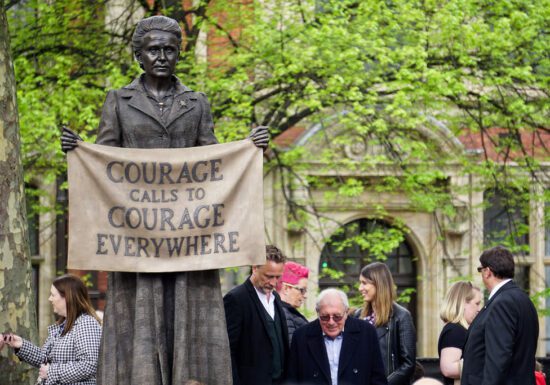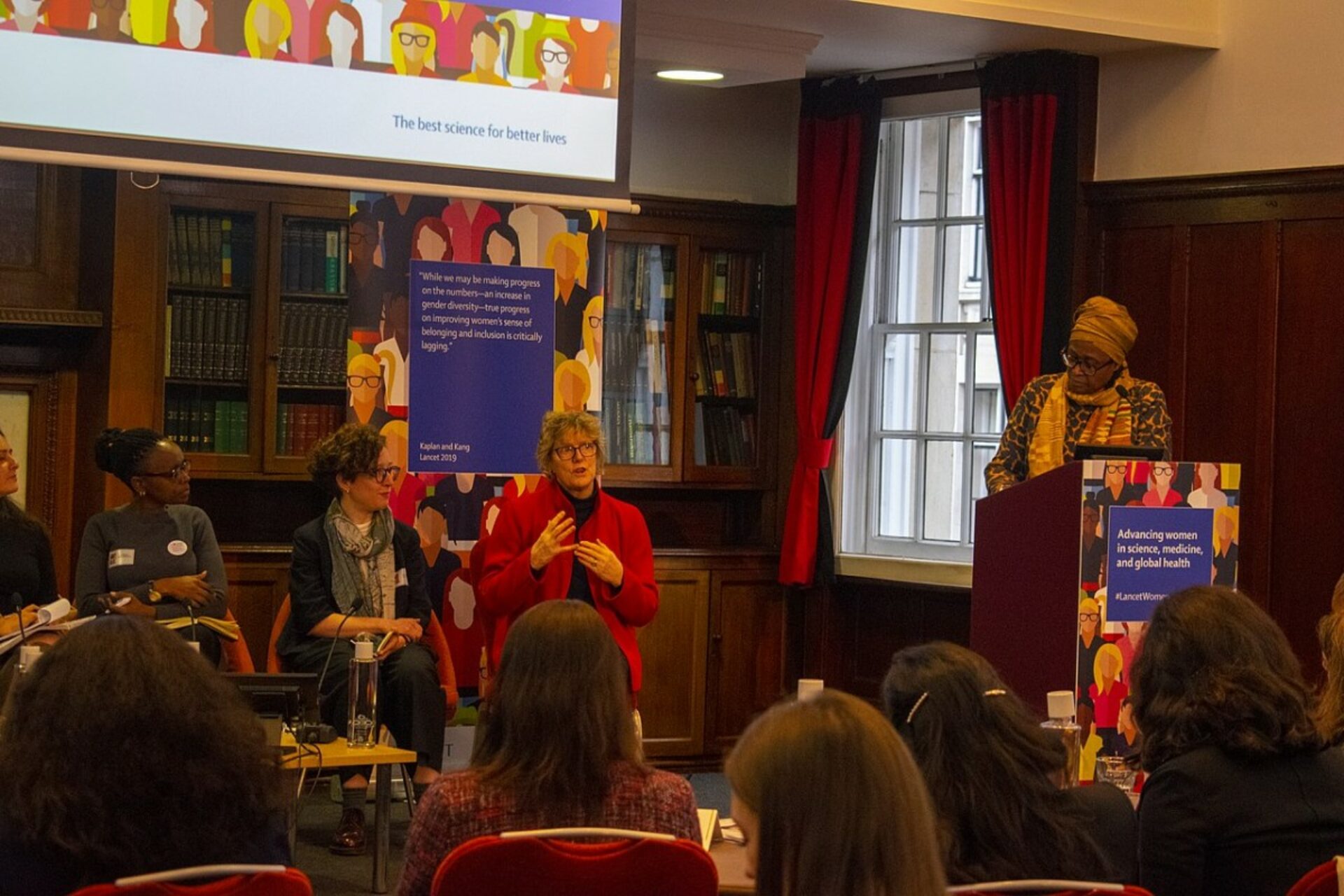McPin’s Research Director considers gender, equality and science after attending the recent LancetWomen event.
Vanessa Pinfold
I was recently invited to attend the launch of LancetWomen, an event to mark the publication of a special edition of The Lancet journal “Advancing women in science, medicine and global health”.
It was a really thought-provoking day, not least because it was hosted in one of the many buildings around London that speaks to ‘male power’ of time past – the old General Medical Centre HQ near Regents Park that is now the Hallam Conference Centre.
The opening speaker was the inspirational Caroline Criado Perez (@CCriadoPerez) who successfully campaigned to have a woman on a bank note – Jane Austin is now on the £5 note – and the first female statue in Parliament Square with Millicent Fawcett unveiled in 2018. Yes, it took until 2018 for one of 12 statues in the square to be female.
Caroline’s current campaign and book exposes the absence of female-focused design and the problem of the gender-data gap in areas like car safety, where a male default is the standard for test dummies.
Her talk was a fitting opening to a day of discussions that ranged from addressing inequalities of opportunity for women scientists in different countries, to how funders have a role to play in tackling the gender-gap including who sits on funding committees and who is asked to peer review protocols, to how to shift the culture of influencing or networking away from outside of usual office hours.

Prior to attending LancetWomen, I did a tally of projects I have worked on to see what the gender balance is.
Currently, I am working on studies led by 11 men, 10 women and two with joint leaders. In the last few years, I have experienced a similar balance of six men, four women and one with a joint leader.
I admit, the near balanced score card did surprise me – is mental health doing better than other disciplines? This might be the case in terms of gender but it is certainly not elsewhere.
For example, the sector has too few academics from BAME communities in leadership positions. I can only think of a small number of people and this includes a few professors who will be retiring soon.
This is really concerning given the complexity of mental health and how this requires diversity of experiences and thinking.
One take-home message from the event is that we need a wider lens on equality in science than gender alone. Little was spoken about intersectionality with disability, sexuality, ethnicity and religion as well as considering gender and transgender.
We emphasise the importance of ‘expertise by experience’ and mostly this refers to experience of mental health issues. But we all have different life experiences to draw upon, and I found, in particular, experiences of motherhood have helped me in my
Inspiring women
Since I am writing this blog on International Women’s Day, I have taken the opportunity to think about the women in mental health research that I know about and the impact they have.
The first name that came to mind is the new head of mental health at the Wellcome Trust, Professor Miranda Wolpert, who will be responsible for a large new funding programme and whose unit at UCL recently reviewed our Right People, Right Questions top 10 priorities for young people’s mental health research.
The second was the first professor of user-led research based at the Institute of Psychiatry, Psychology & Neuroscience (IOPPN), Professor Diana Rose, whose work we draw on regularly.
At McPin, we emphasise the importance of ‘expertise by experience’ and mostly this refers to experience of mental health issues. But we all have lots of different life experiences to draw upon, and I found, in particular, experiences of motherhood have helped me in my work.
I have actively drawn upon these experiences in several projects including our Birth Companions study and our pregnancy and medication work. Does my gender influence the organisation I lead? Does it impact on the research we prioritise? I don’t think so in any strategic way but it might do subconsciously.
What has always been important to me is trying my best, considering different viewpoints, apologising when you get things wrong or misunderstand and leading with integrity and passion.
Influence and power
At LancetWomen, Professor Dame Sally Davies, Chief Medical Officer and the recently appointed master of the prestigious Trinity College at Cambridge University – the first female to hold such a post – said that in her experience, women feel more comfortable with influence than power.
I was struck by that statement and I liked it although I am not sure you can untangle these two things very easily!
People obviously have different leadership preferences and styles. What has always been important to me is trying my best, considering different viewpoints, apologising when you get things wrong or misunderstand and leading with integrity and passion.
I will be more aware after the LancetWomen event of how important the conversation around gender bias is, the importance of male champions, and the small changes that can make a huge difference, for example, the images we choose to use.
At McPin, we changed our promotional postcard image from female to male to reach out to more men as we know they are underrepresented within involvement work.
Do get in touch and tell us about who are the women in mental health science who inspire you and why. We’d love to collate these and celebrate more broadly the contributions being made across the country.
Vanessa Pinfold is Research Director at McPin.
